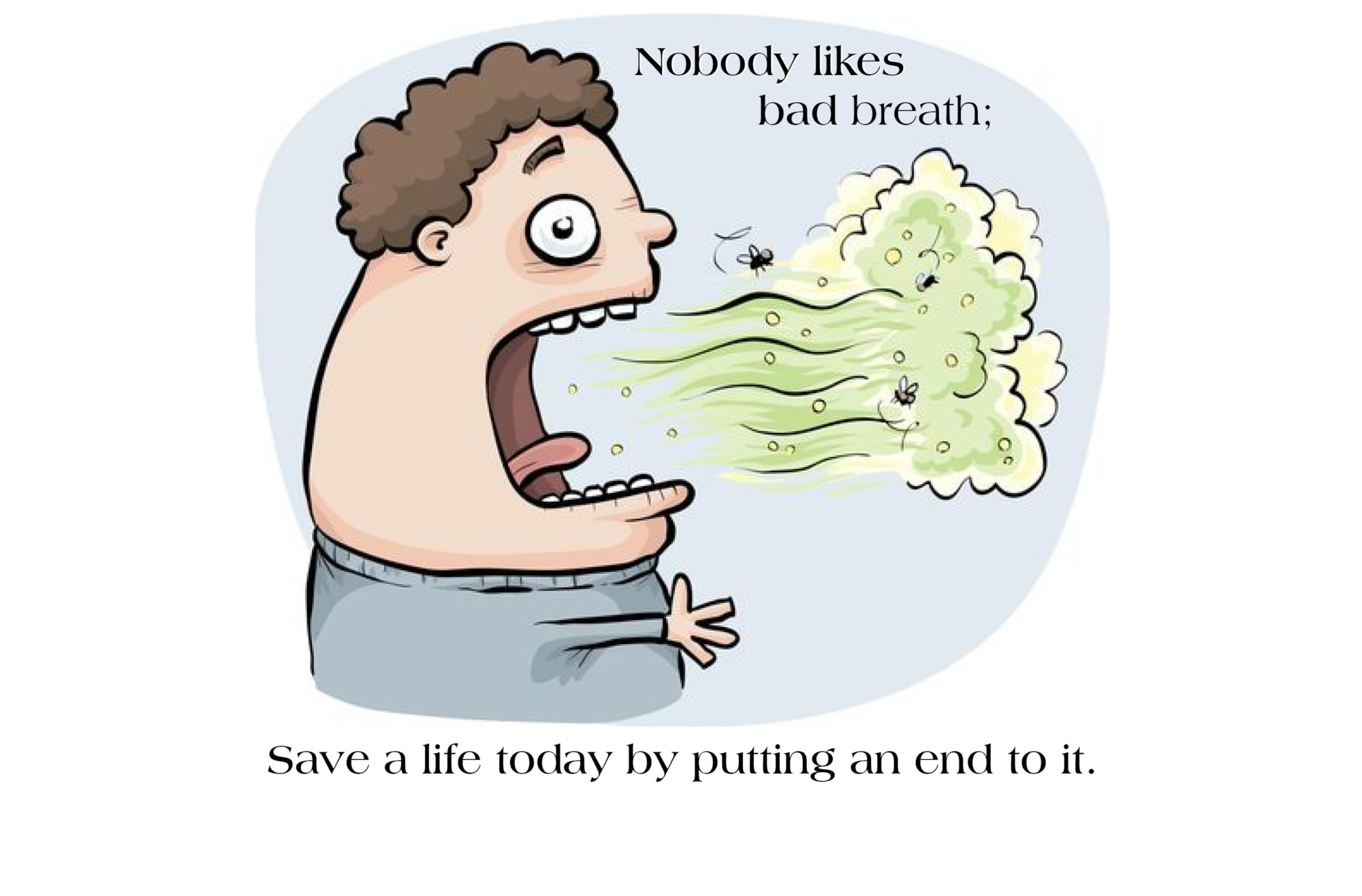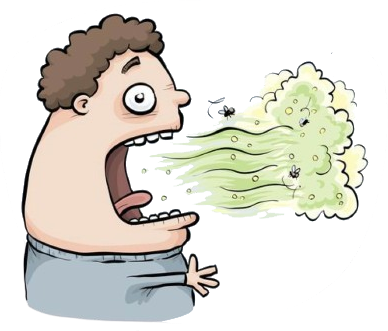Fruits, vegetables, sugar-free yogurt with probiotics and vitamin D, and foods containing vitamin C and fibers are all important to maintain good oral hygiene and a healthy body. While many people believe that garlic and onions cause bad breath, the most common cause of bad breath isn’t smelly food. It’s bacteria in your mouth known as plaque. Chewing gum helps loosen food and dead cells from teeth, oral gums, and tongue by rubbing against them and producing saliva.
Drinking water helps fight dehydration and flushes food that feeds on bacteria (acidic byproducts) from your mouth by producing saliva. It acts as a constant cleansing agent due to its high levels of oxygen. Water also dissolves stinky acid substances in foods and drinks.
Brushing your teeth eliminates bad breath and oral hygiene issues. Teaching children good teeth brushing techniques at an early age will help them to prevent periodontal diseases and cavities, improve plaque control, and will promote a lifetime of good oral health. Everyone should brush their teeth every morning and evening.
Flossing removes plaque and food between teeth. It controls the plaque and gingival inflammation within the mouth. Combined with brushing and rinsing, flossing is effective in loosening food and preventing bacteria in the mouth that can lead to bad breath.
Water picking or water flossing is better than brushing your teeth and rinsing with mouthwash. The American Academy of Periodontology reports that water flossing is a great way to reduce bacteria and easily remove plaque by eliminating bacteria from gum pockets. This technique also is proven to reverse gingivitis in patients. Water picking gets deeper into the pockets in your gums than string floss. Water picking is also safe and gentle around dental implants, braces, and dentures.
Mouthwash helps with reducing bad breath bacteria, gingivitis & plaque, topical pain relief, tooth decay, dry sockets, and cavities. There are two types of mouthwash: cosmetic and therapeutic. Cosmetic mouthwash only masks bad breath smells because it doesn’t kill bacteria in your mouth. However, therapeutic mouthwash contains the chemicals that can reduce bad breath, gingivitis, tooth decay, and plaque. Mouthwash should not be used as a replacement for brushing or flossing.

